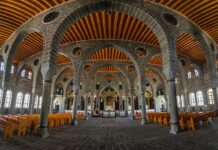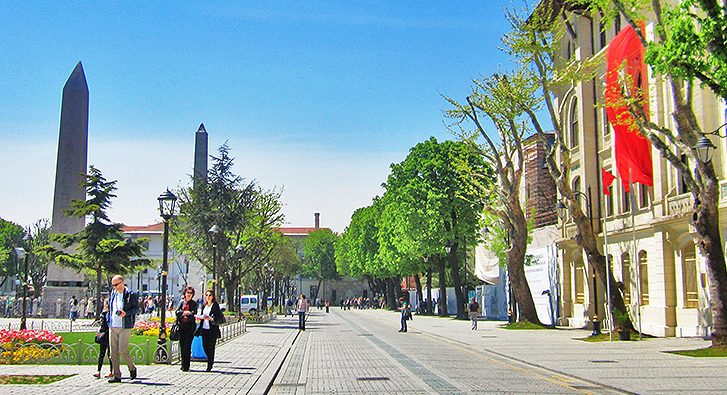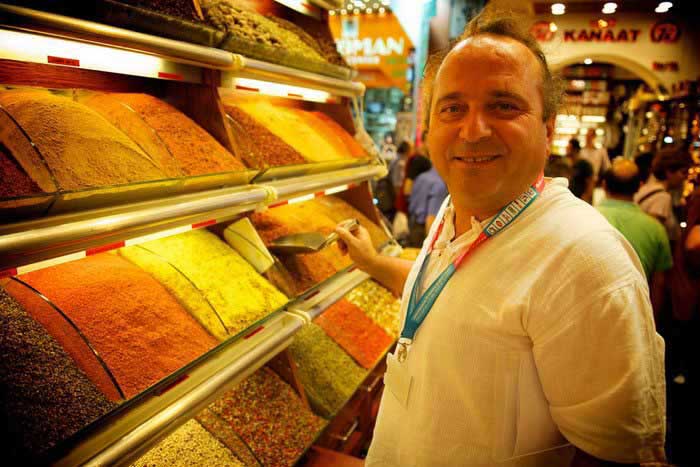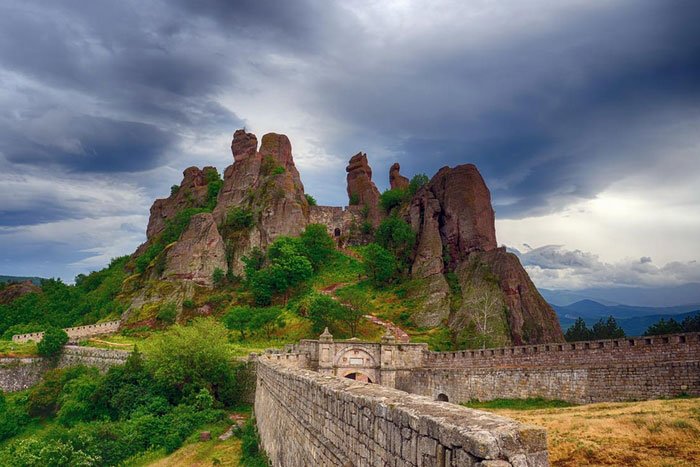We, of course, would like to see Theoderic more enlightened still. Then by a familiar rhetorical ploy he could be the idealized barbarian with his fresh ideas from outside the gray world of civilization. He was enlightened only up to a point: refusing to impose belief, and refusing to transgress the laws. He resembles Hadrian more than an American president—stern in modesty, but stern nonetheless. His gentleness was an ancient trait, soon to be rendered obsolete by Justinian’s more modern integration of religion and politics. Toleration has had to be relearned by many modern generations, and religious exclusion roars back repeatedly without much invitation.
Everything Theoderic did as monarch, I am tempted to say, embodied this Hadrianic moderation and calm. What if you did not know he was supposed to be different, supposed to be a “barbarian”? What if you knew he was born inside Roman boundaries (he probably was), and if you knew he had changed his name to Hadrianus? I venture that most students would comment first on how Roman his regime was, and then on what a wonderfully abundant cultural heritage this Roman regime left behind, far richer than anything since the late fourth century. Theoderic would be remembered as the great restorer of the Roman order.
For Theoderic belongs to an old, conservative tradition, and if the Edict of Theoderic that comes down to us in 154 short chapters—virtually every one a quotation from earlier law—is his (as in some form it may well be), it is in the tradition of the praetor’s edict of old: “If anyone bury a dead body inside the city of Rome, he will be forced to hand over a fourth of his property to the treasury. If he has nothing, then he will be beaten and expelled from the city.”10 Romantic fancy about falling Rome might lead one to imagine that the city was less thickly settled inside its walls than before and that the old and healthy idea of taking bodies outside the walls for burial was giving way to more practical use of space, but we needn’t let ourselves be fanciful. This prescription asserts both the authority of tradition and the traditionalism of authority. Even the Christian- influenced precepts of the edict are phrased in ways that make it clear how Roman this Christianity had become. The right of sanctuary is phrased thus: “If anyone should drag people out of churches, that is to say, places of religion, or think that anything can be taken away from there violently, let him be subject to capital punishment.” That is the voice of an ancient Roman magistrate private bulgaria holidays.
The administration in Ravenna
Theoderic’s working court—the administration in Ravenna—was Roman at every level as well, with officers like the praetorian prefects and masters of offices we have met on other pages. Throughout the time of Theoderic, the traditional titles of office were attested, respected, and held by one or another of the Romans of Rome—the old senatorial families or, at best, some of the arrivistes who were ready, willing, and able to become an old senatorial family at the earliest opportunity. (Theoderic’s death challenged these boundaries. During the regency of his infant grandson, the rank of patrician fell in turn to both a Roman civilian, Liberius; and Tuluin, a career soldier in Theoderic’s retinue.) The emperor at Constantinople managed an essentially identical cabinet, though the complexity and intrigues of the large imperial palace gave rise to a further apparatus of guards and chamberlains.
Theoderic continued to appoint not only the supreme officers of the realm, but even the lesser ones: managers of arms factories and mints (Theoderic continued a very Roman coinage), governors of provinces, and the prefect of the night watch of the city of Ravenna. Of particular interest are the “defenders of cities” (defensores civitatis) appointed from the court since the fourth century and still under Theoderic in at least some places. Roman society had rooted itself in a core of elites based in communities from Arabia to Britain. Wealthy and wellborn citizens would lead their cities, and in exchange they were obligated to pay for their communities’ infrastructure and ostentation. Membership in the local senate may have been an onerous honor, but in the classical age these leaders welcomed it. Prosperity and pride led men to accept the opportunity and to build an empire of a grandeur that could not have been imagined without their resources and generosity To all Jews who live in Genoa.
After Constantine, the burdens grew more onerous and the honors less satisfying. A spate of laws in the fourth century attempted famously (and quite unsuccessfully, by all evidence) to deter local senators (decurions, they were called) from fleeing their offices for opportunities elsewhere. For us, the obvious message of these laws is that people were fleeing. Augustine of Hippo, the great Christian, was one such refugee, abandoning his ancestral home of Tagaste and the duties his father had bequeathed him in favor of an ecclesiastical career. The townspeople of Tagaste lost Augustine’s talent, but the citizens of Hippo found in him a leader with a new kind of community spirit and offering a new kind of public service.








